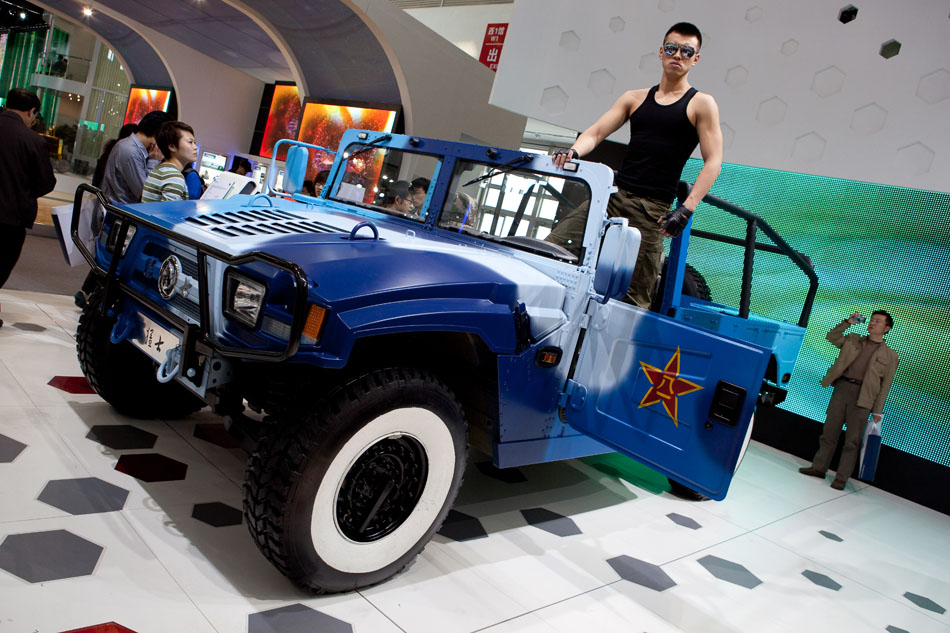Apr 27, 2012 | Clippings, Portraits
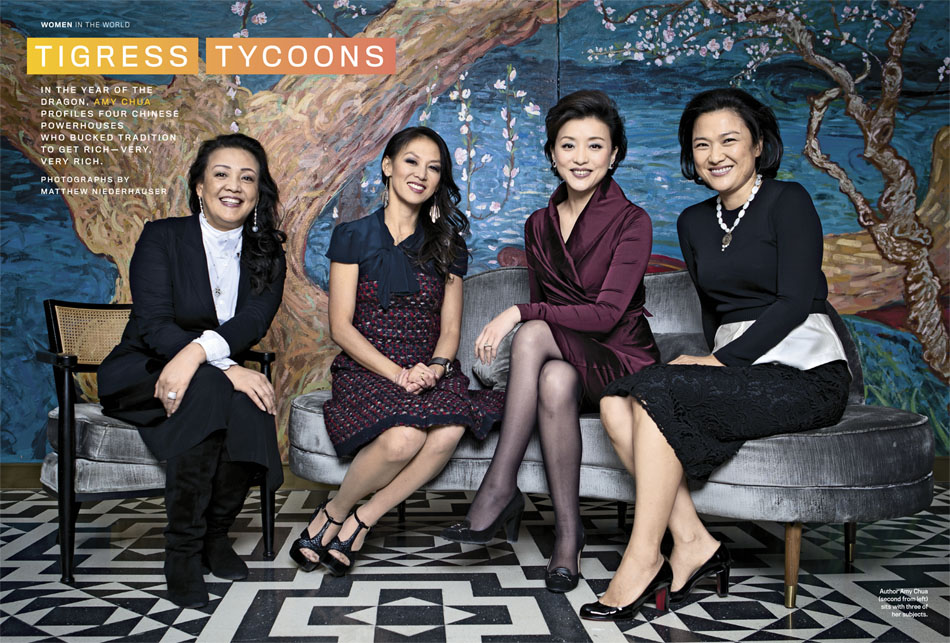
This was one of my most intimidating assignments to date: a portrait of three of the richest females in China along with Amy Chua, the author of Battle Hymn of the Tiger Mother, in less than ten minutes before their power dinner. It really was a Tigress Tycoons showdown. The leader of the streak, in my eyes, was Zhang Xin/张欣 (far right). Her company, SOHO China, is easily one of the top real estate developers in China, building some of the most daring (and sometimes dastardly) megablocks in the country. These properties reshaped Beijing’s skyline and netted her about $2.7 billion. Forbes and the Financial Times consistently list Zhang Xin as a top businesswomen in Asia. Her biography is also staggering. She saved up money working in Hong Kong garment sweatshops before moving to England to study at Cambridge and on to New York City to work at Goldman Sachs. Amazing. Next to Zhang Xin is Yang Lan/杨澜, also know as the “Oprah of China” thanks to her massive television presence and media empire. While not a rags to riches story like Zhang Xin, Yang Lan hit it big on Chinese domestic television, sometimes garnering viewing audiences in the hundreds of millions. She was one of the first talk show hosts in mainland China who really spoke her mind and cofounded Sun Television Cybernetworks.
Last and certainly not least of the Tigress Tycoons is Zhang Yan/张兰 (far left). She founded the popular South Beauty restaurants with now boasts over forty locations throughout the country. Known for their opulent settings, they also serve up extremely tasty Sichuan fair. Zhang Yan completed the female power trifecta. Amy Chua is nothing to scoff at of course, but fits into a different category with her academic and literary accolades. Her book promoting the “Tiger Mother” parenting method sent waves around the world, especially in mainland China. There is even now an “Eagle Dad” spinoff category. Anyway, it was a bit tense at first getting all the ladies together, but thanks to the antics of Zhang Xin’s husband, Pan Shiyi, who decided to take photos along with me, the ten minutes passed without a hitch. Be sure to check out Amy Chua’s accompanying profile of the Tigress Tycoons.
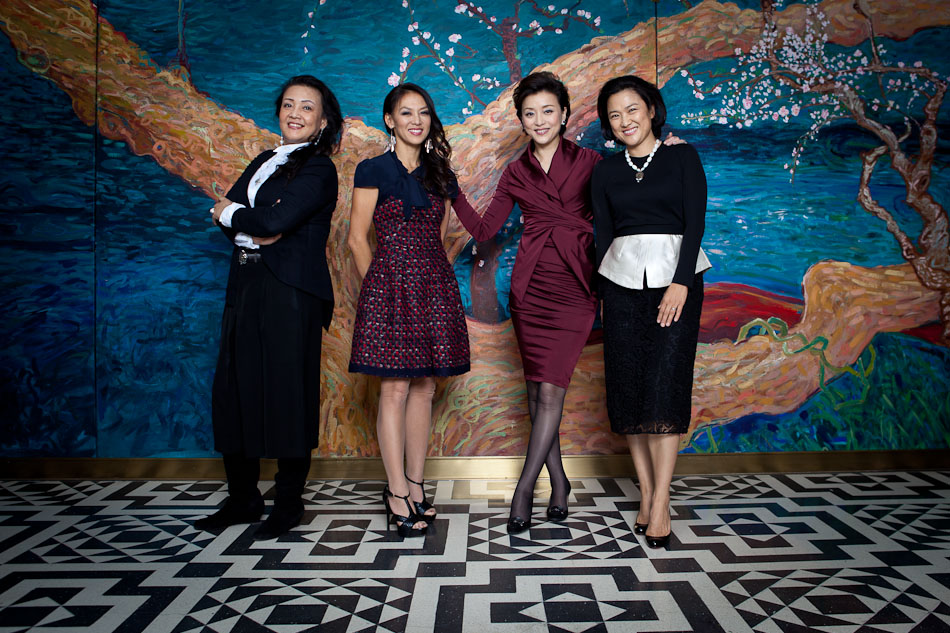
Apr 6, 2012 | Clippings, Consumerism, Counterfeit Paradises, Development, Society
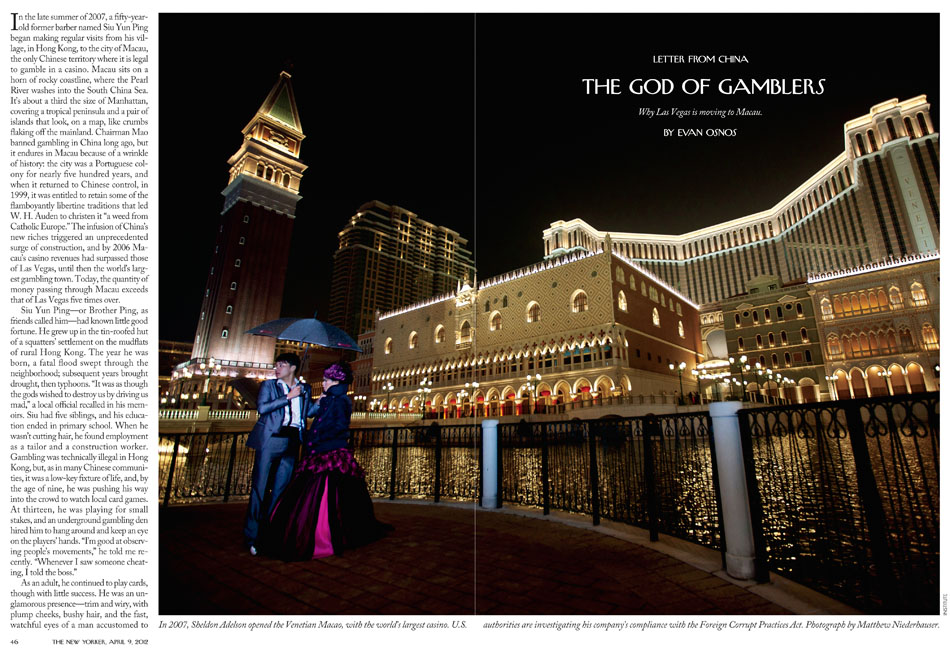
Macau looms large on the iniquitous edges of Asia. It is a city of sin: filled with casinos, prostitutes and any other vice or luxury one could imagine. In many ways this is business as usual. Trafficking of women and general skullduggery date back to the earliest days of the Portuguese colony at the turn of the 16th century. Now the stakes are much higher though, and for many visitors, money is not an object. Macau currently draws the biggest “whales” in the world and most of these high rollers come straight out of mainland China. The increase in gambling revenues in Macau is unprecedented. Galaxy Entertainment tripled its profits during 2011, and the entire casino industry is already up 20% in the first quarter of this year compared to last. Macau outperforms the Las Vegas Strip nearly six times over and there is no end in sight.
The already outrageous revenues posted by Macau casinos also appear to be the tip of the iceberg. It is largely acknowledged that a massive amount of cash moves through V.I.P. gambling rooms where high-stake bets are off the books. No one knows how deep that well goes. Money laundering and connections to triads run rampant through the “junkets” who shuttle wealthy mainland Chinese gamblers into Macau and collect their debts elsewhere in order to bypass currency limitations at the border. Macau is riding the tails of China’s economic boom and catering to the extravagant tastes of the Chinese nouveau riche looking to flex their often illicit financial muscles.
At the top of the pyramid are two of the world’s richest men: Steve Wynn and Sheldon Adelson (also the largest contributor to Newt Gingrich’s campaign efforts). Both are in heated competition to rule Macau as their fortunes continue to skyrocket despite serious allegations of corruption and a spotty track record. A WikiLeaks spinoff called CasinoLeaks – Macau offers up condemning fare based on collected public records. Be sure to read Evan Osnos’ article in The New Yorker that features my photography. He does an amazing job navigating this intricate web of sordidness. More photographs that didn’t make the cut can be seen below.
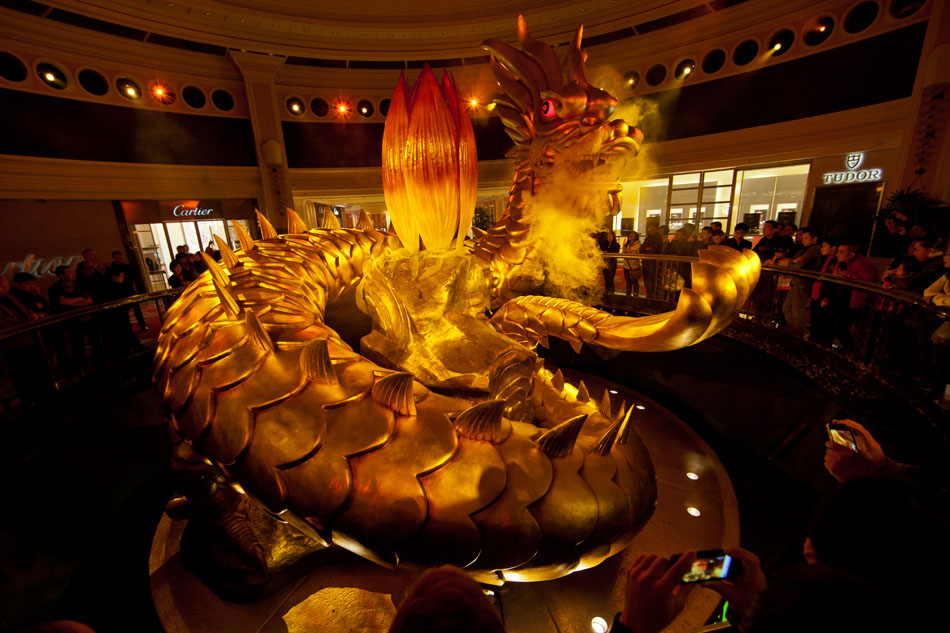

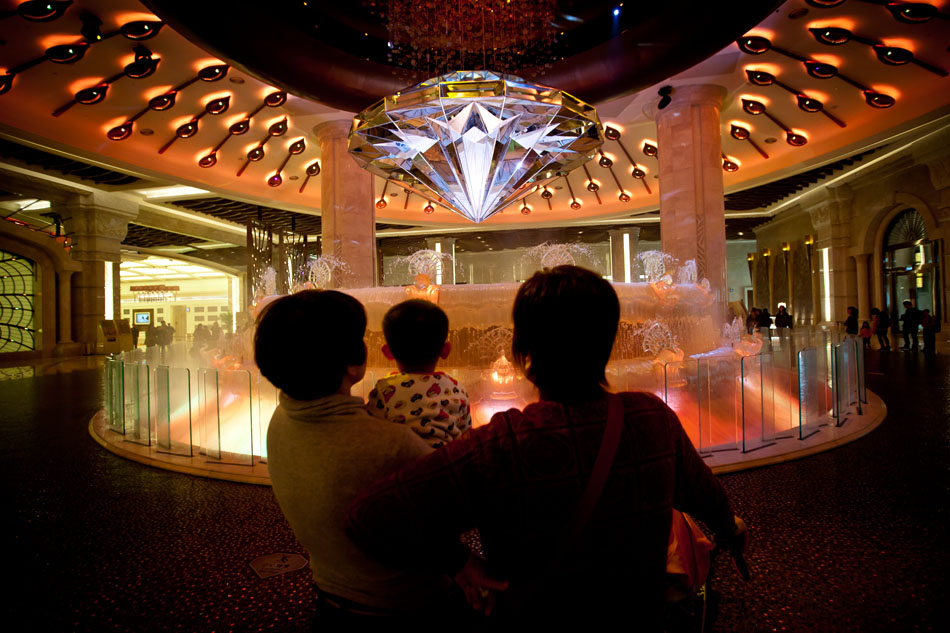
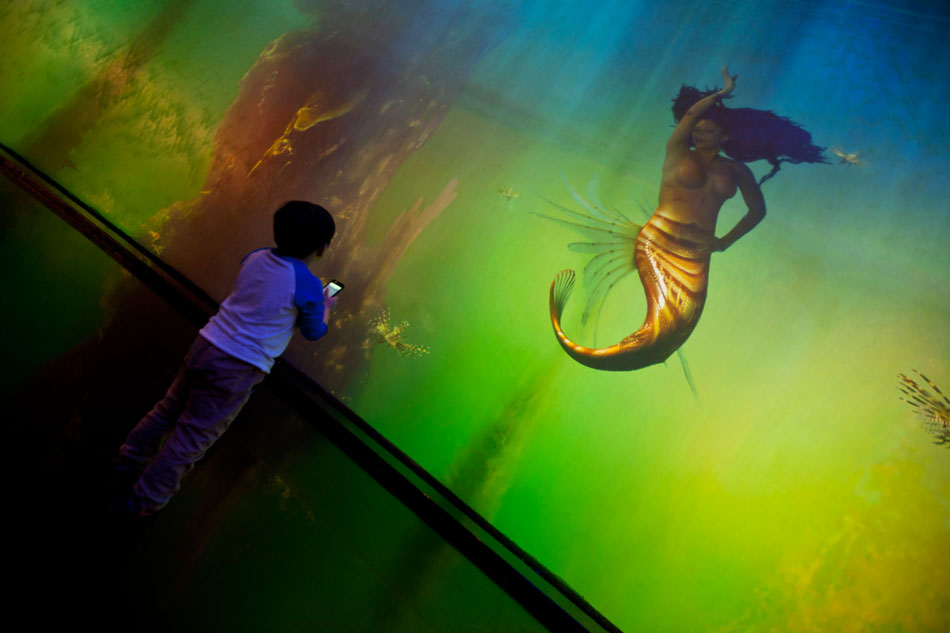
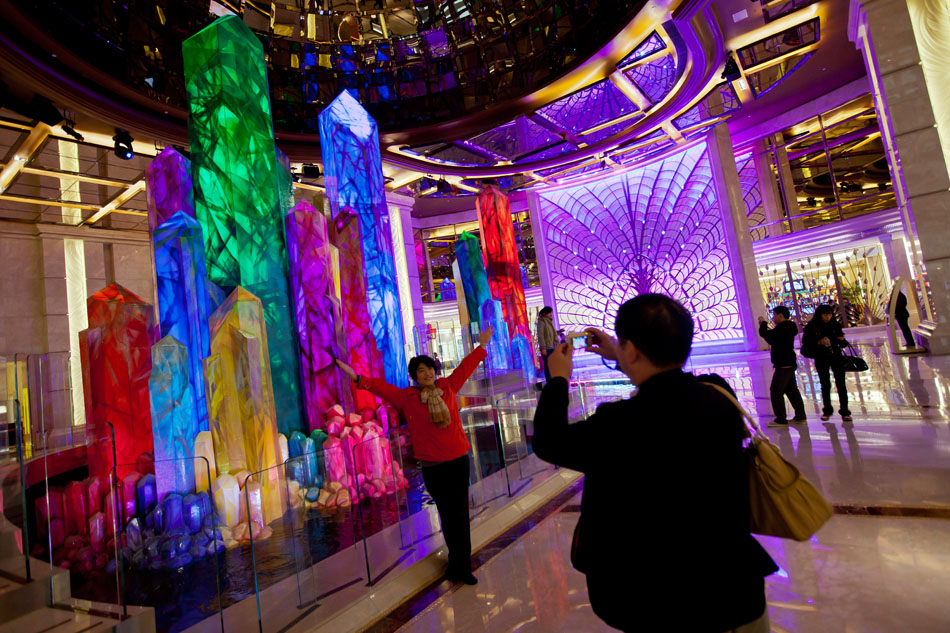
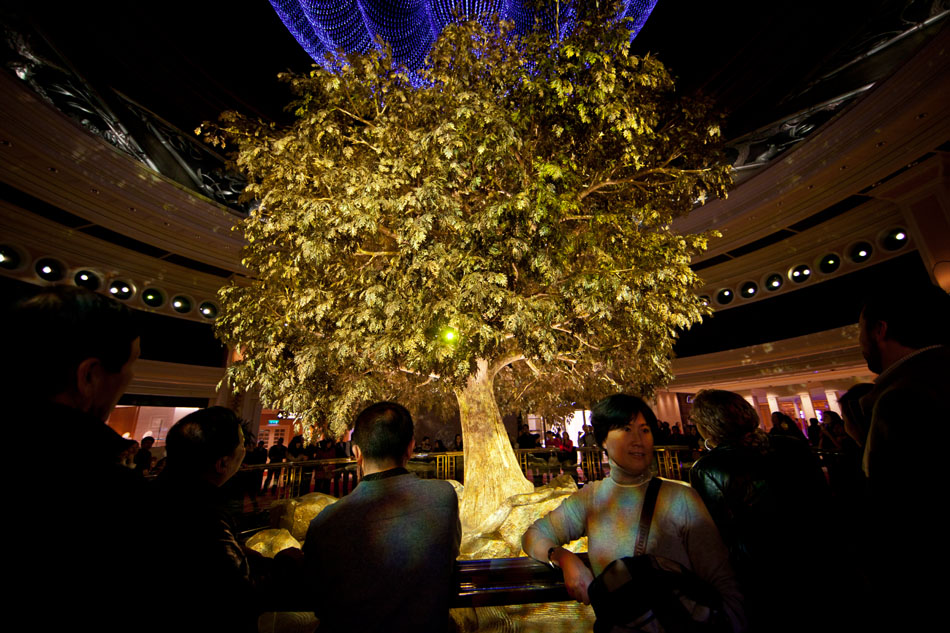
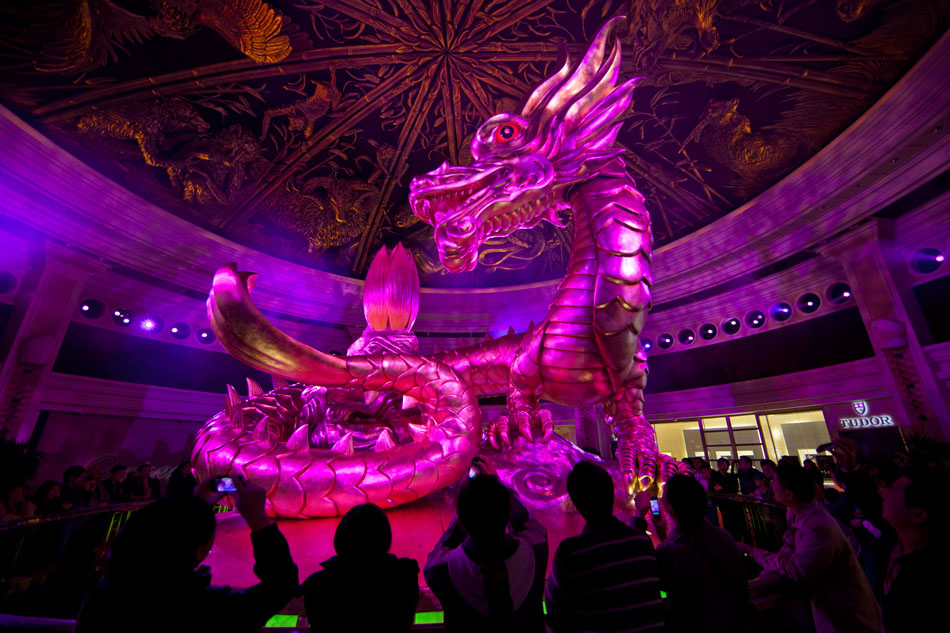
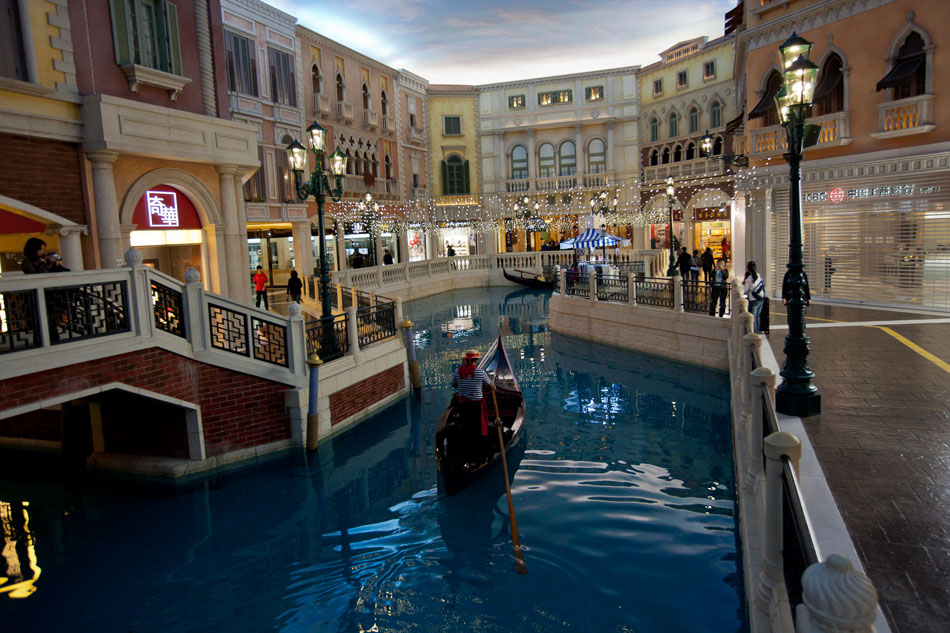

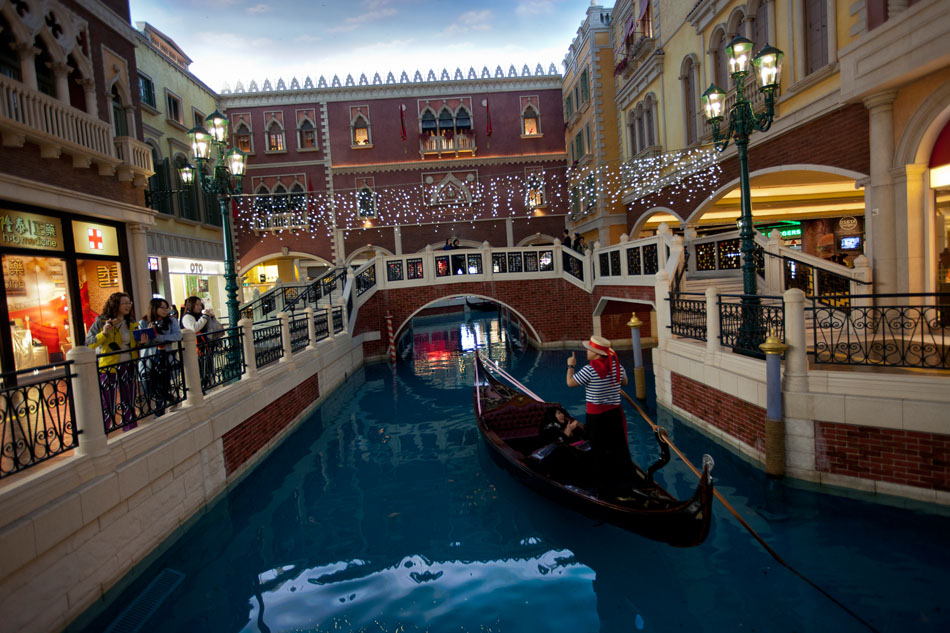
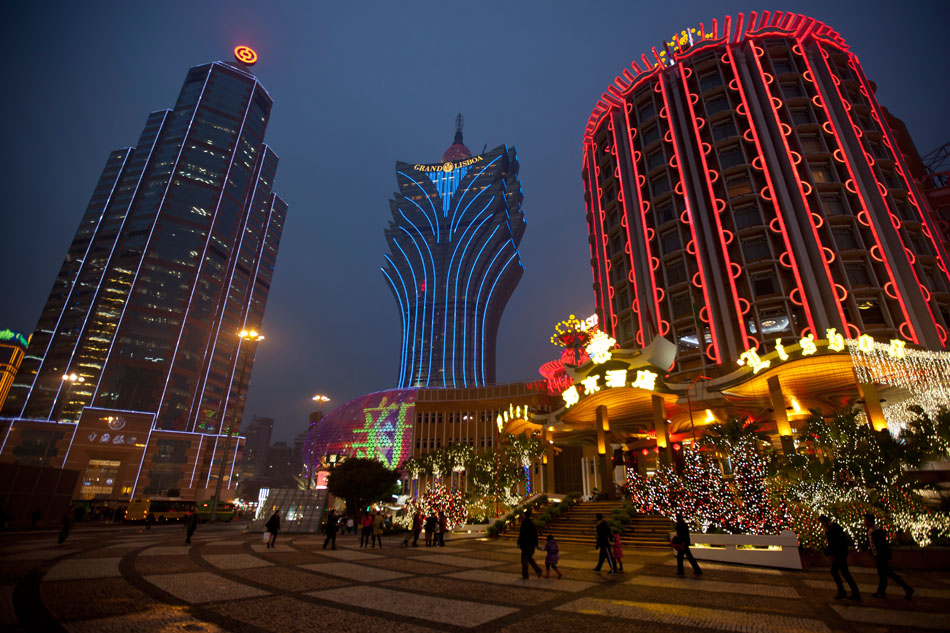
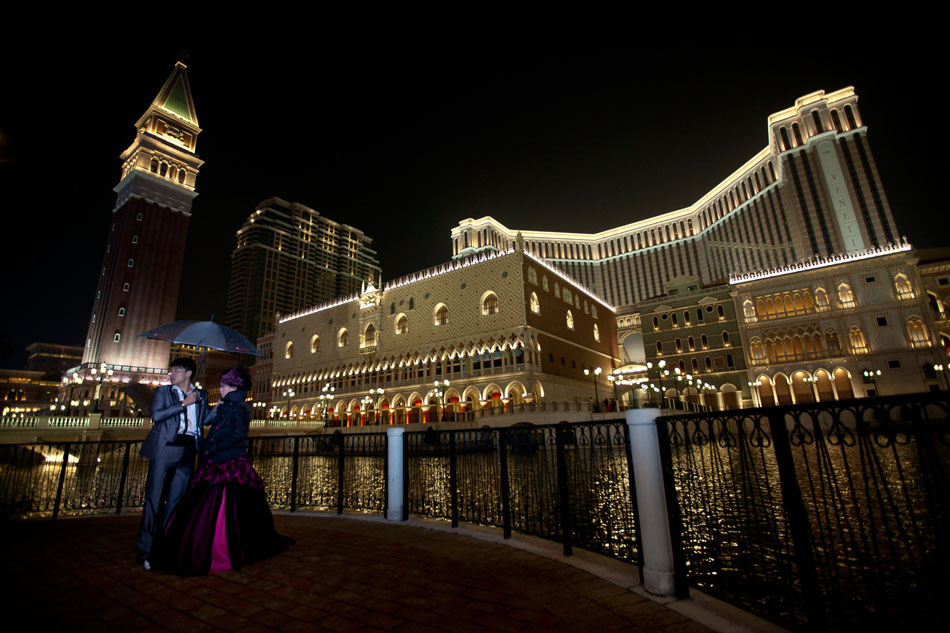
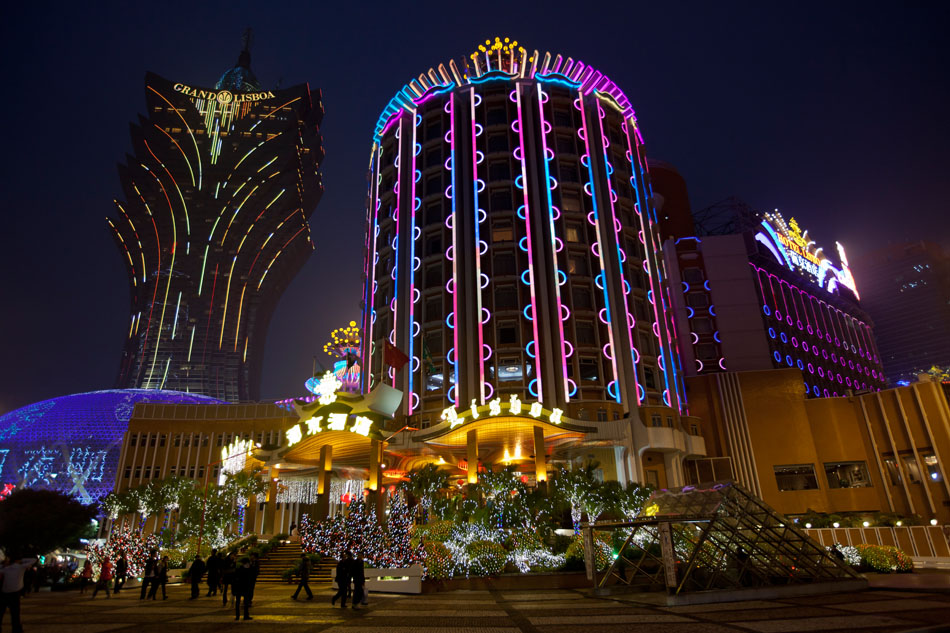
Mar 30, 2011 | Counterfeit Paradises, Society
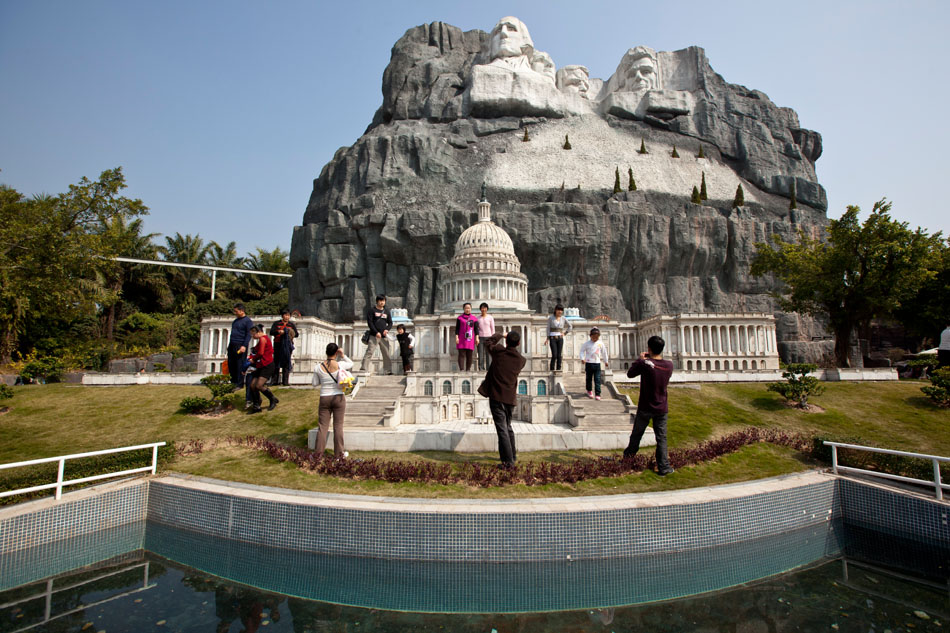
International vacations are a must for the burgeoning number of nouveau riche across China. A well-used passport is a sure sign of fulfilling a “modern” and “cultured” lifestyle and completes the trifecta of high social status along with ownership of multiple homes and foreign luxury cars. Even in the face of the global economic downturn, China continues to boast the fastest growing outbound tourism market in the world. In 2009, the average expenses paid by Chinese for international travel went up 21% and will continue to grow as more and more flex their purchasing muscle. In Shenzhen, however, a favorite travel destination remains the Windows on the World. A short subway ride from the city center, the park boasts over a hundred small-scale replicas of famous monuments and buildings from all over the world. Here Chinese can fantasize about visiting foreign countries and practice taking tourist photographs. This make-believe space is one of consumer indoctrination and a selling point for a notion of civility that will most likely prove as empty as other social movements in China’s past.
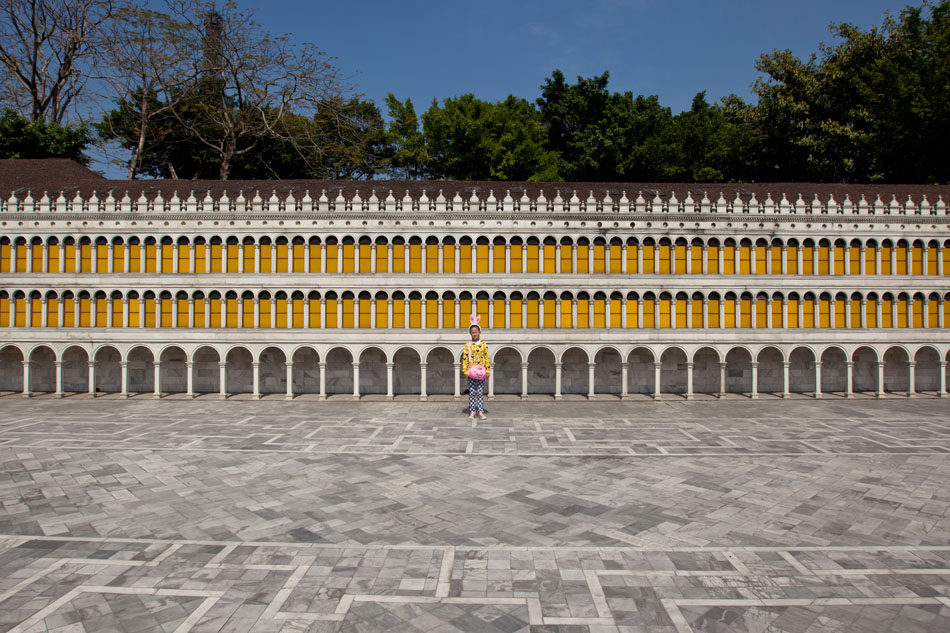
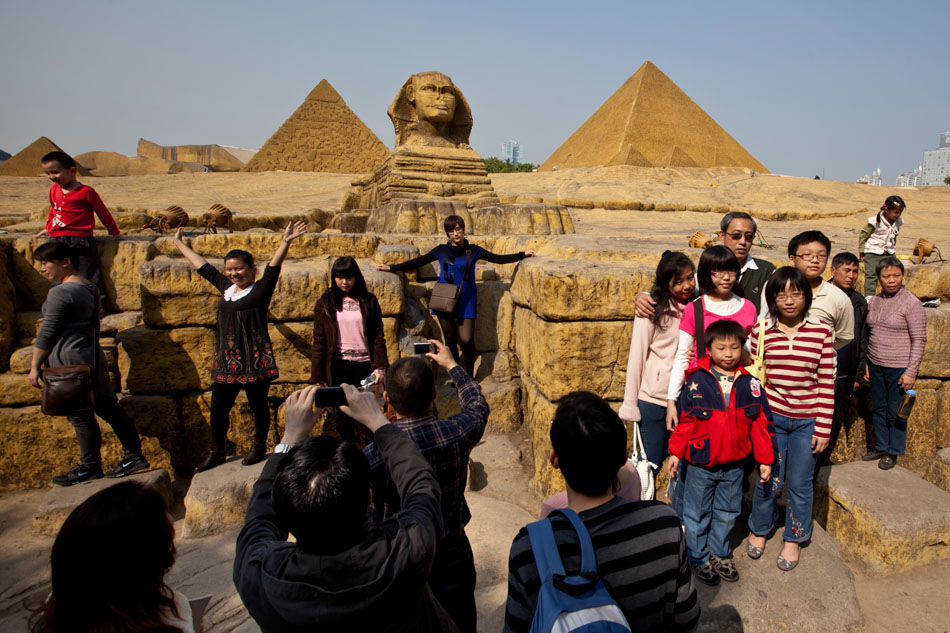
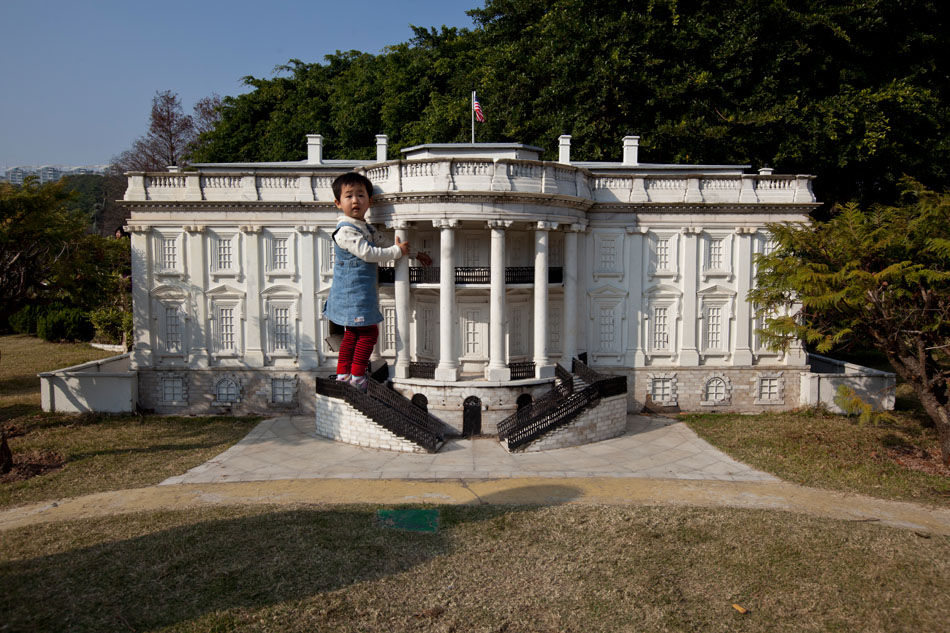
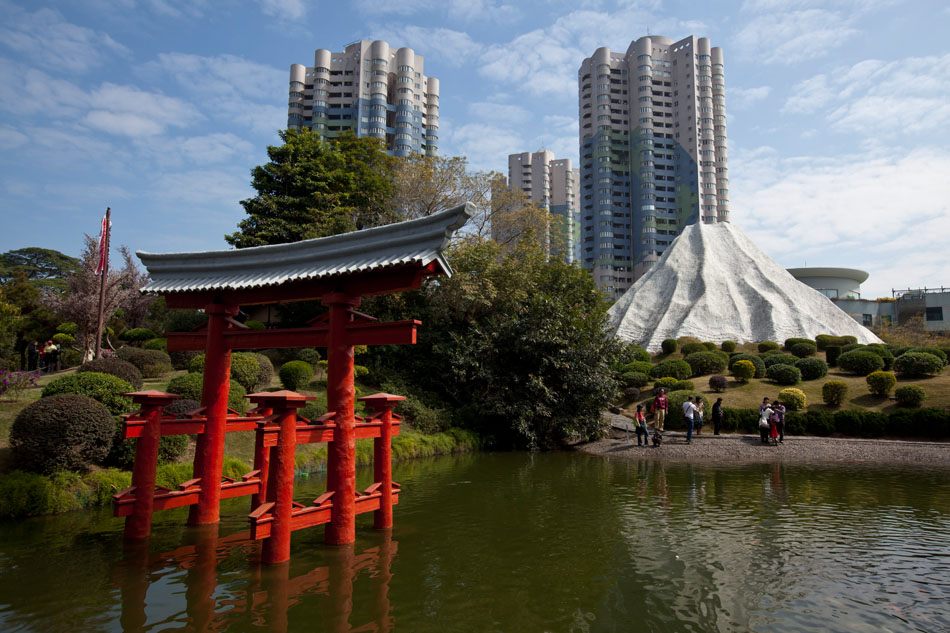
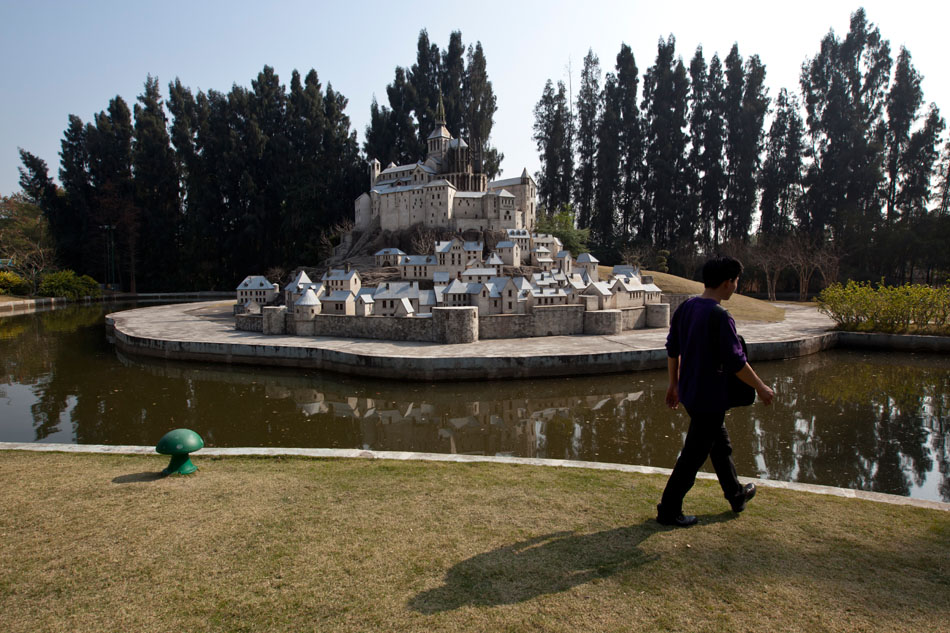

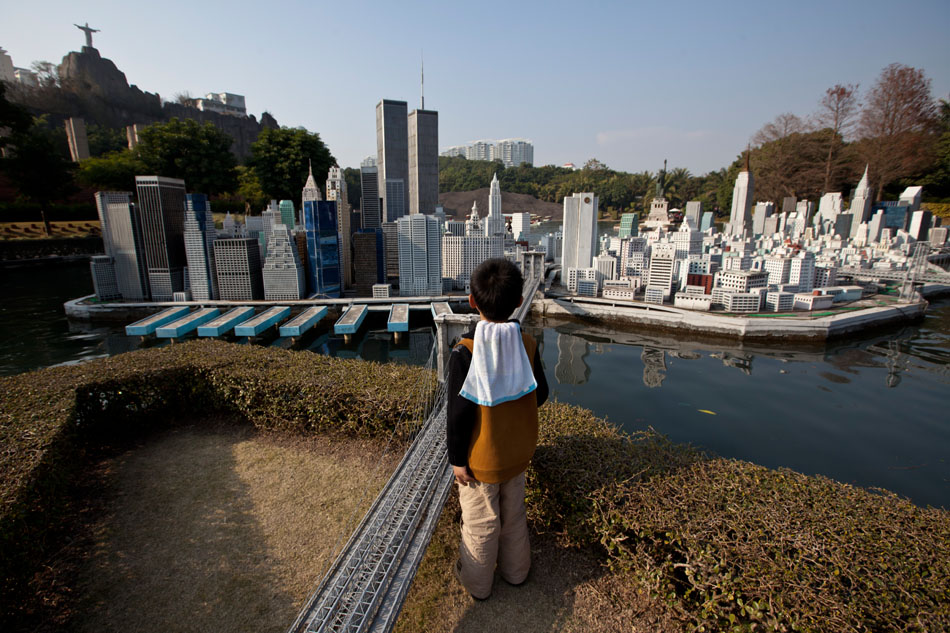
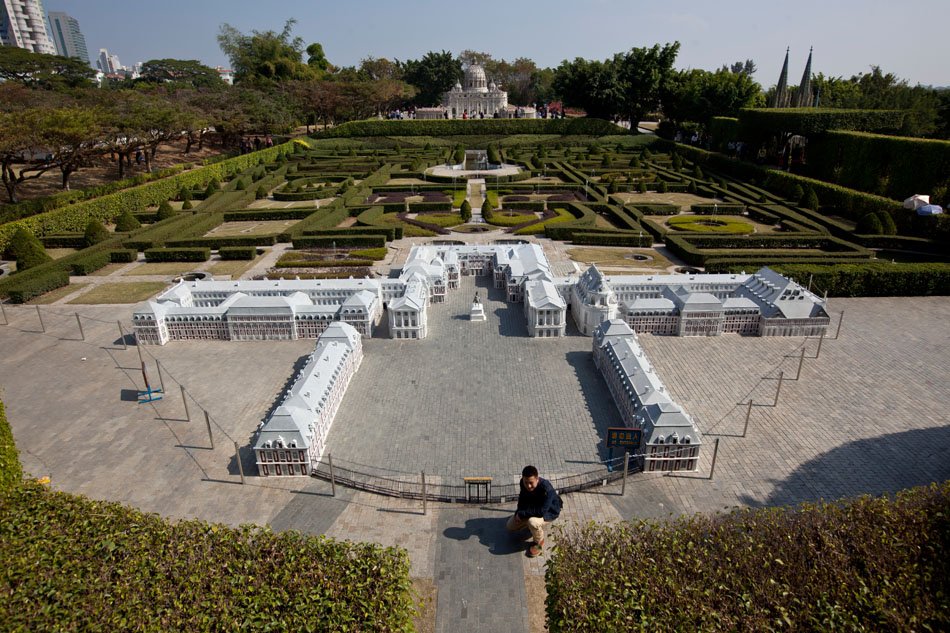

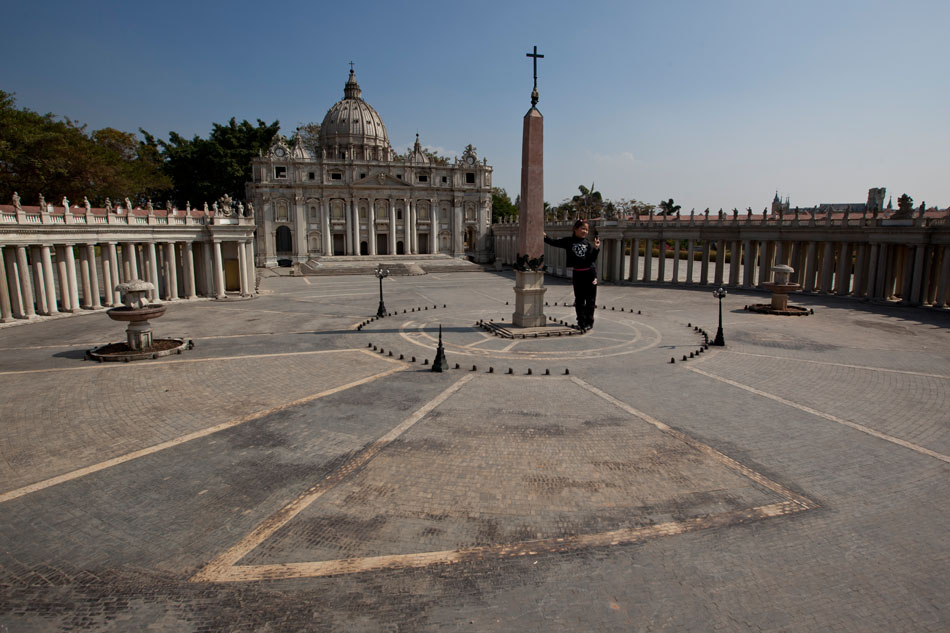

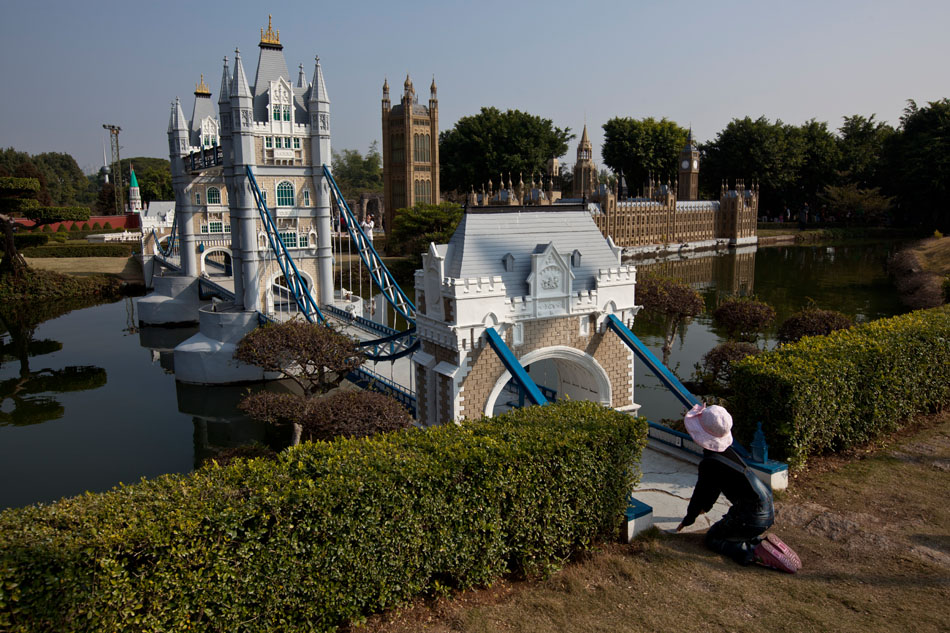
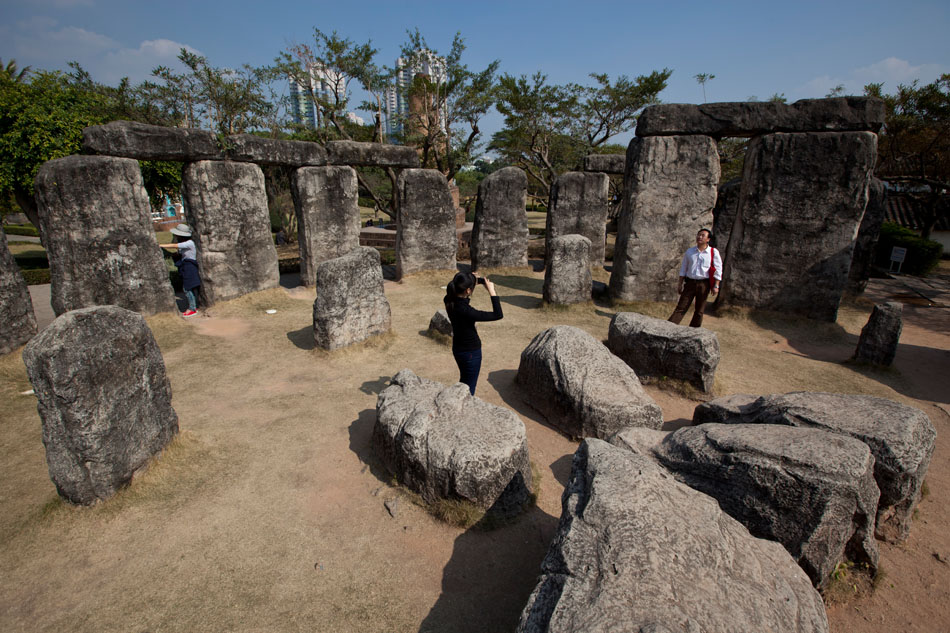
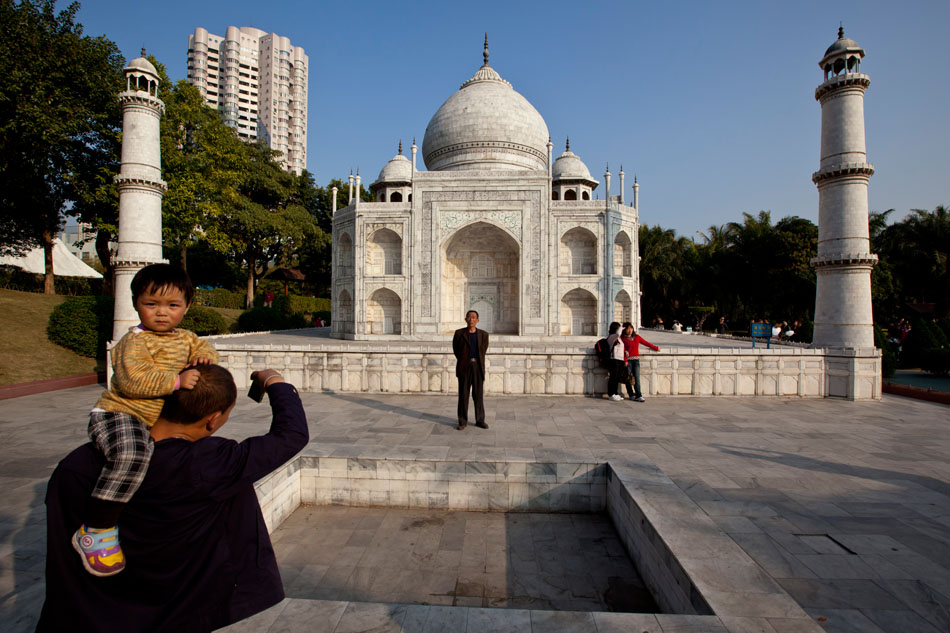
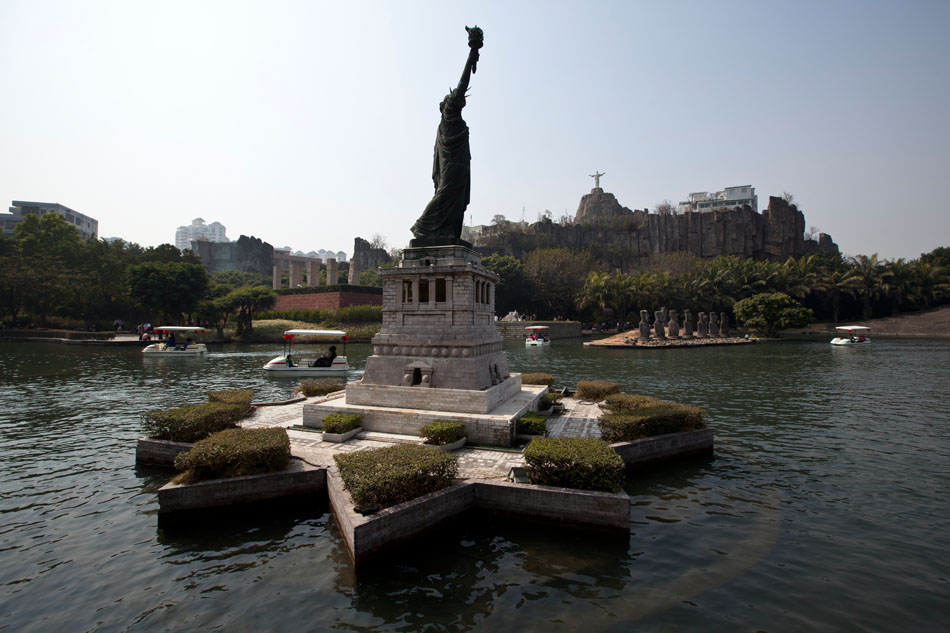
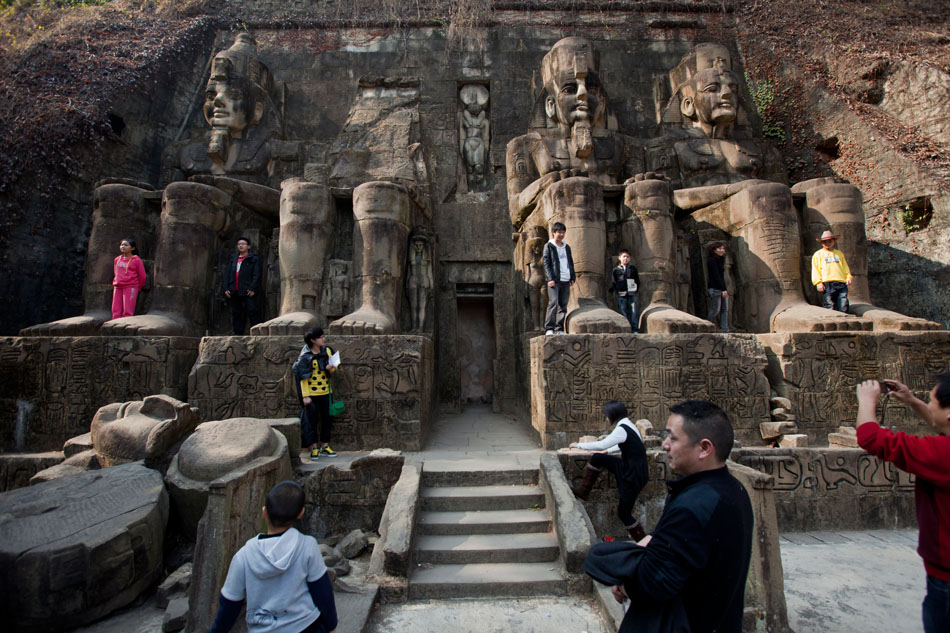
Sep 21, 2010 | Counterfeit Paradises, Society
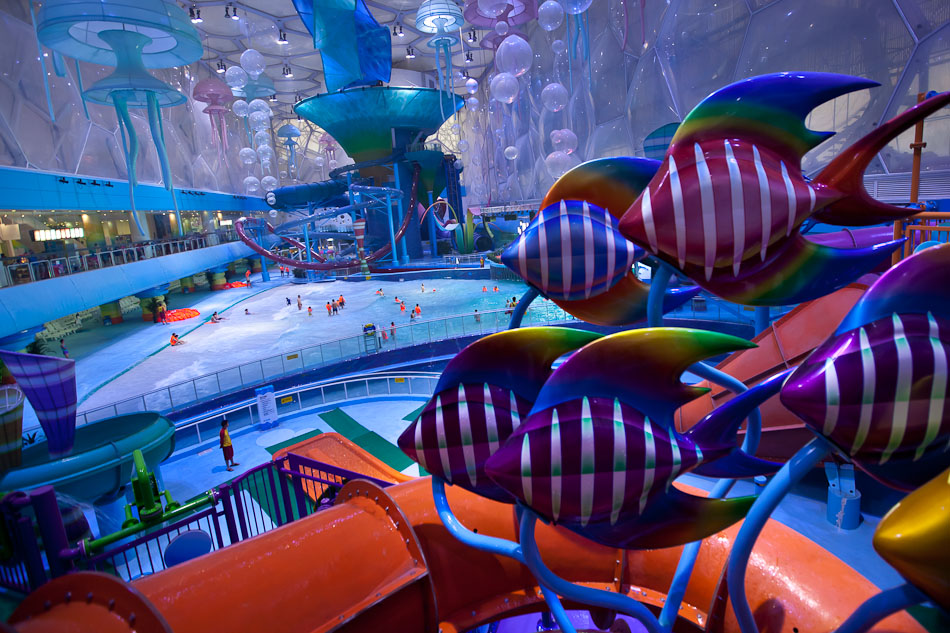
The Water Cube on Beijing’s Olympic Green is easily one of the most enthralling aquatic centers on the planet. Its bubble-like exterior is almost as recognizable in China as the Mao portrait hanging above the Forbidden City. However, ever since Michael Phelps walked away with eight gold medals in 2008, the Beijing municipal government has struggled to make the complex a commercially viable venture and just recently placed all their hope in an incredibly ornate theme park. The “Happy Magic Water Cube, Beijing Water Cube Water Park,” now dominates the southern end of the structure and caters to an emerging urban elite who can afford the hefty entry price. The water park epitomizes the fantastical escapism so sought after by a burgeoning moneyed class in Beijing. Here one can slip into a state of reverie and forget about the smog-covered skies and endless traffic jams just outside the aqua-blue cellular membrane encasing the Happy Magic Water Park. It is the ultimate leisure playground in a country still coming to grips with profound social inequalities.
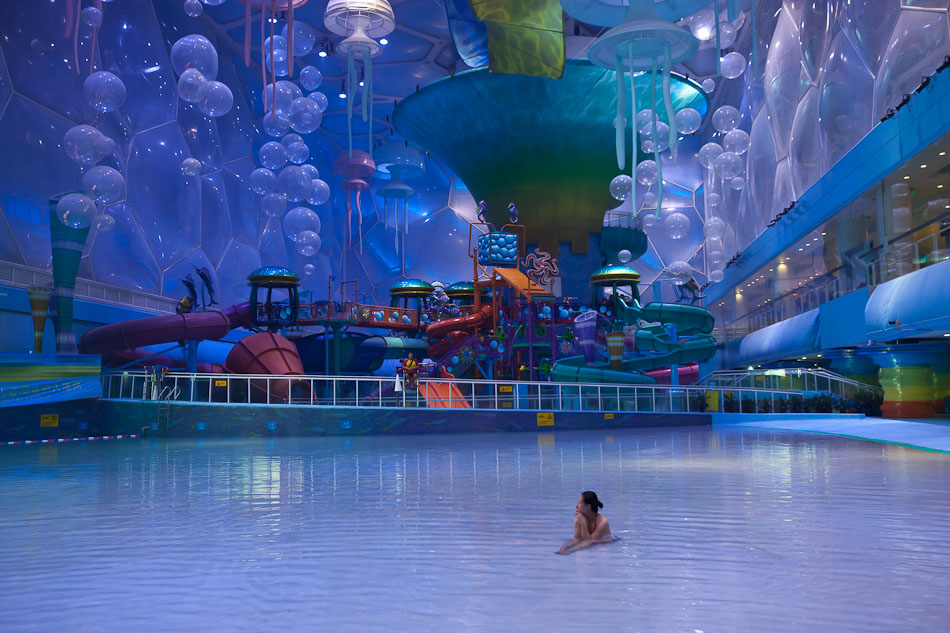

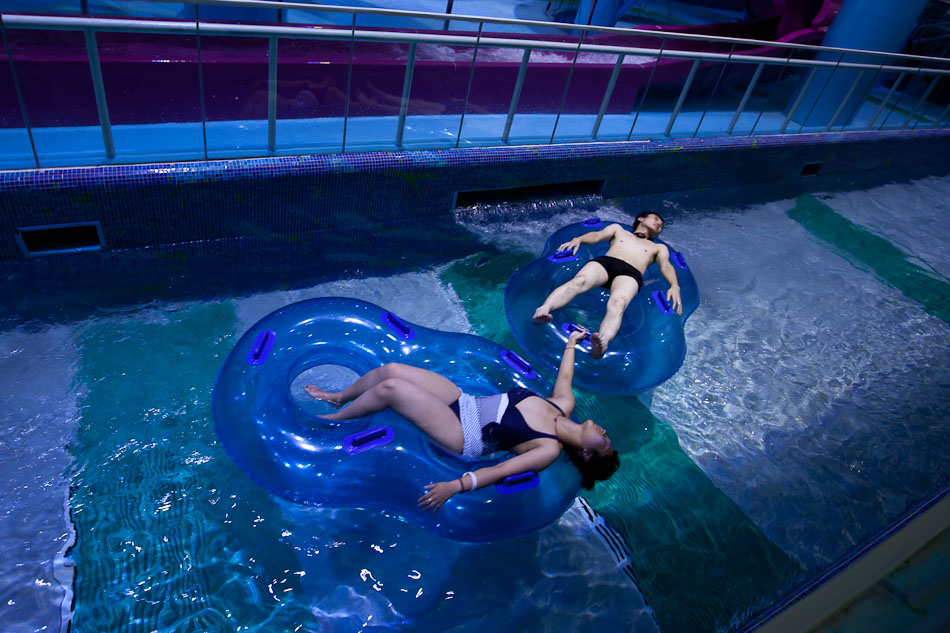
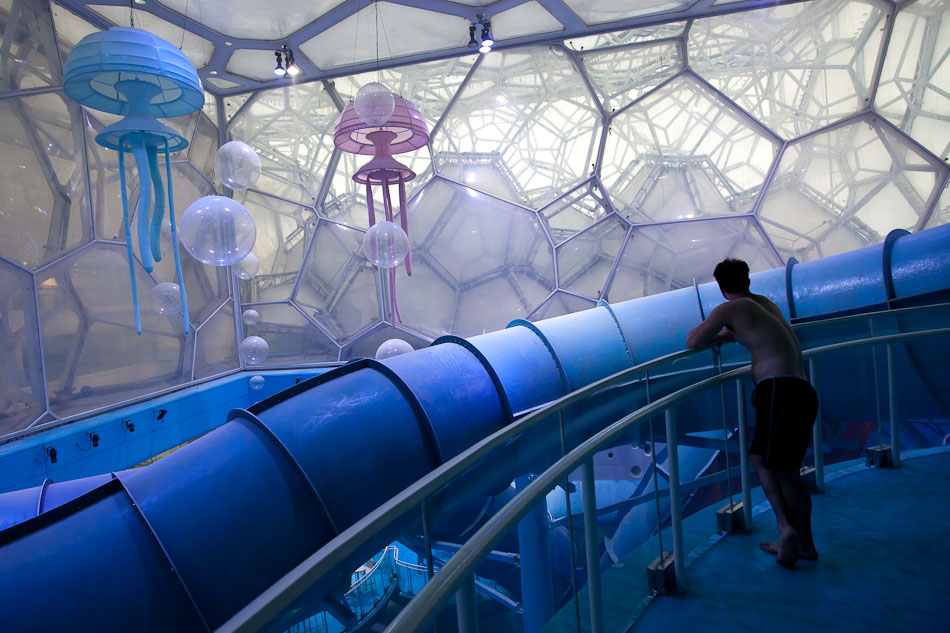
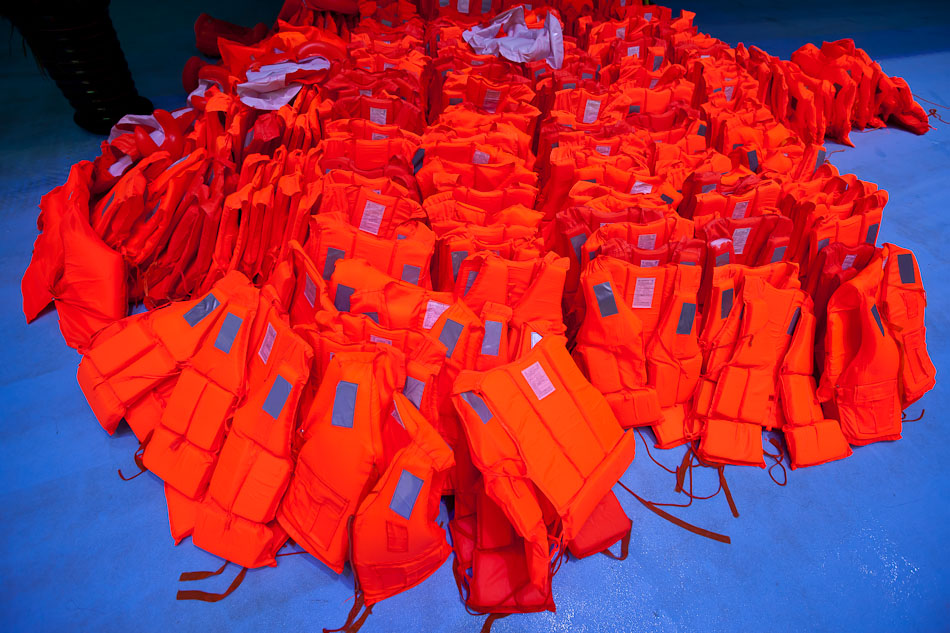
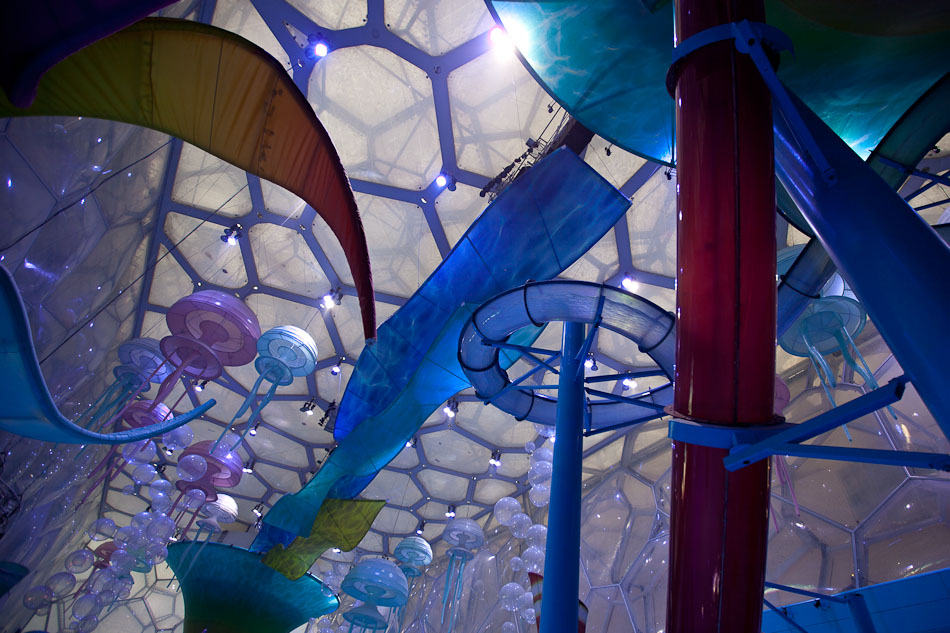
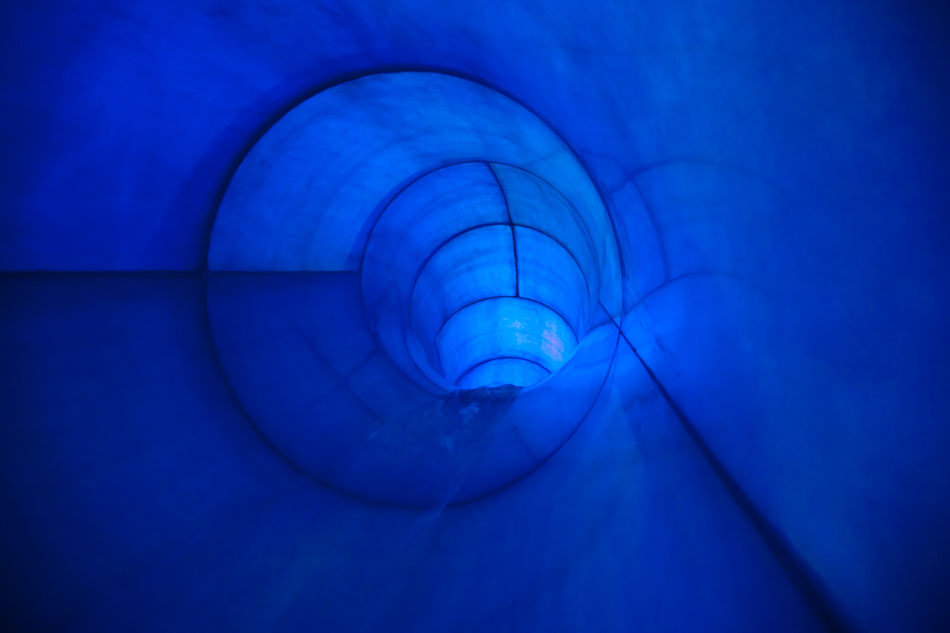
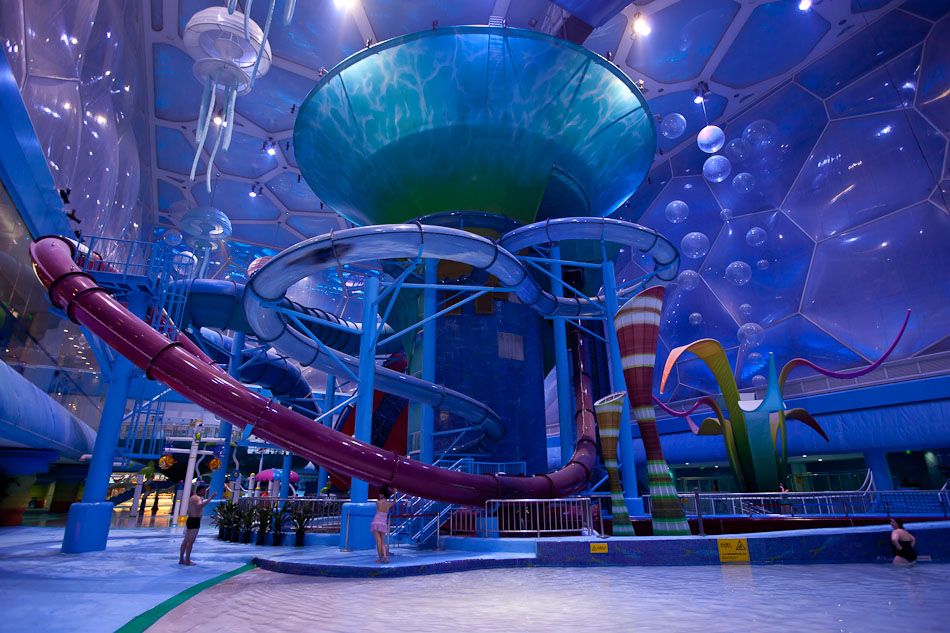



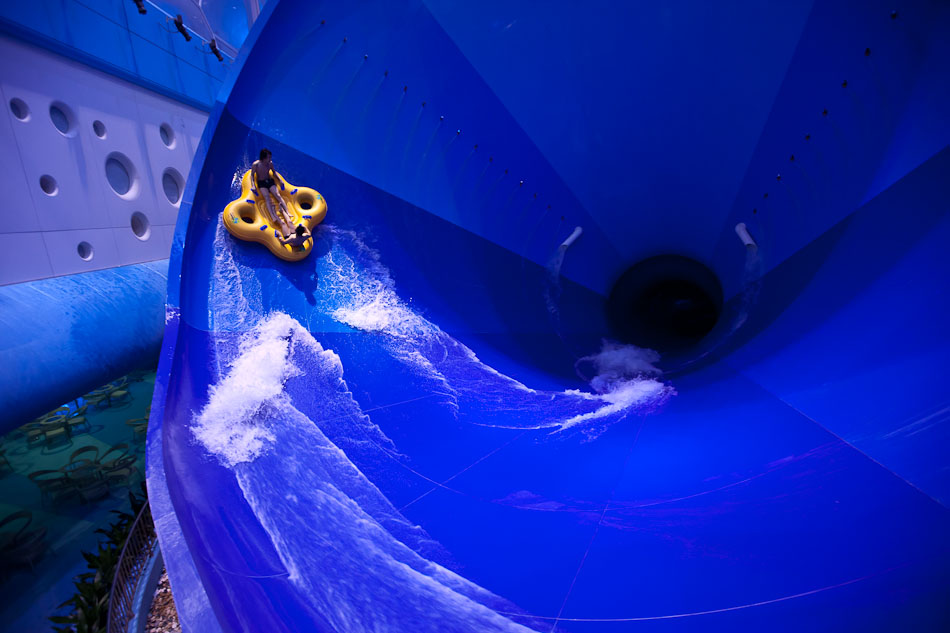
Apr 28, 2010 | Counterfeit Paradises, Society
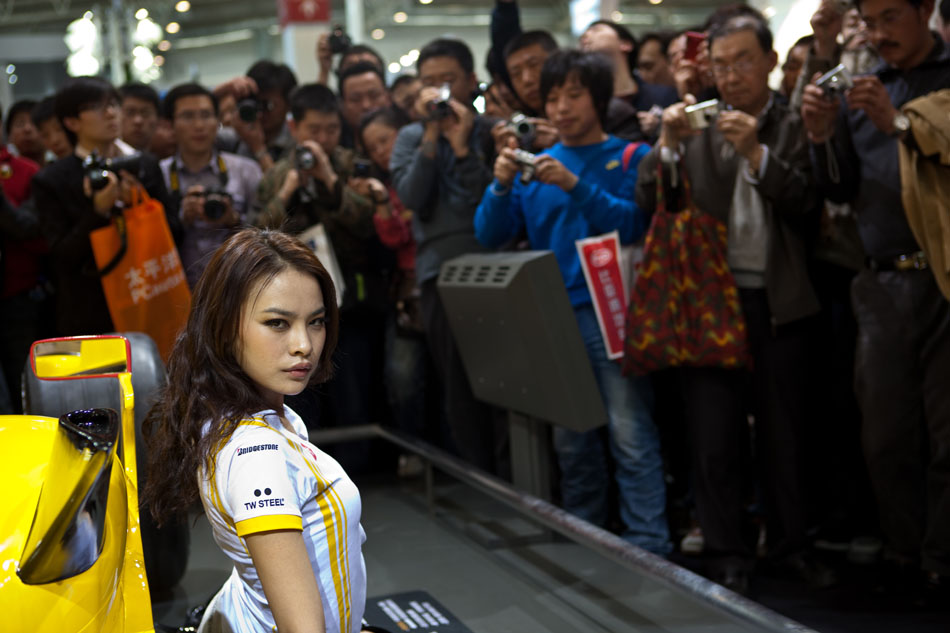
Cars are quickly becoming the most hypersexualized and sought after commodity in China. Purchases already surged 45% last year, surpassing the US with 13.6 million vehicles sold, and show no sign of stopping. The greatest manifestation of this phenomenon is now the Beijing International Automotive Fair held every year on the outskirts of the city. With scantily clad models striking poses in every booth, over 40 luxury cars were sold in the first few days alone including a Bugatti Veyron sporting a 5.5 million USD price tag. Every car manufacture in the world comes to pay homage to the fastest growing car market on the planet.

